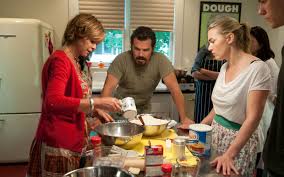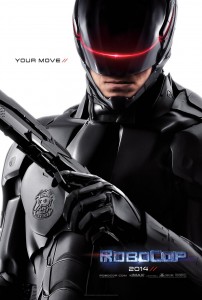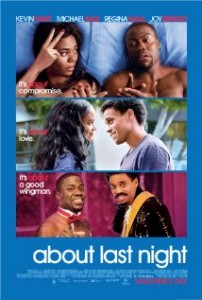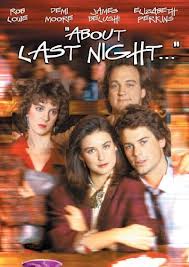The movie doldrums of January are lifting and this week we’re getting two films that show some promise. Kate Winslet and Josh Brolin star in “Labor Day,” based on Joyce Maynard’s novel about a single mother struggling with depression and agoraphobia and a stranger on the run from the law. Maynard says:
about a single mother struggling with depression and agoraphobia and a stranger on the run from the law. Maynard says:
 I always tell students, when I teach writing, to locate their obsessions, and look to them when they’re searching for the story they should be telling. When a writer attaches her work to the engine of what she cares about most passionately (even irrationally, perhaps) the work will be infused with a similar passion, I believe. And come into being most organically.
I always tell students, when I teach writing, to locate their obsessions, and look to them when they’re searching for the story they should be telling. When a writer attaches her work to the engine of what she cares about most passionately (even irrationally, perhaps) the work will be infused with a similar passion, I believe. And come into being most organically.
This new novel of mine–though it’s a product of my imagination, not my experience–contains elements of so many of my deepest obsessions. I think that’s why I wrote it so easily and swiftly–almost as if I were transcribing a story being dictated to me from inside my brain.
Anyone who has read my work for a while can recognize a few obvious connections to my history, starting with the experience of having been, for many years, a single parent of sons (also a daughter) living in a small town not unlike the imaginary town in which I located the novel. I like to think I have a somewhat more stable and grounded hold on reality and life in the world than Adele (and I am, if anything, the opposite of agoraphobic). But I share a number of her attributes: For starters, there’s a hugely romantic nature and a love of dancing (though not her abilities on the dance floor; that part is the stuff of fantasy.) On a deeper level, though, I understand well the sorrow and regret a woman feels when the dream of family life as she envisioned it has left her. My sons–though I like to think they would weigh in with more positive feelings about their growing up years than negative ones–could certainly identify with the feelings Henry has, of undue responsibility for his mother. (Henry’s innocent gift, to Adele, of the Husband-for-a-Day coupon was inspired by a similar gift presented to me one Christmas by my son Charlie, when he was around nine or ten.)
I am always interested–no, fascinated–by children’s perceptions of the adults in their world. The mysterious subject of sex, the first discovery of one’s own sexuality, and the disquieting experience– for a child of divorced parents in particular–of witnessing a parent’s sexuality even as they embark on their own sexual lives. Complicated enough, when a child is contemplating the idea of his parents together–but the experience for a young person (a boy in particular) of seeing his mother with some other man is one I have thought about for a long time. (Ever since my son Willy–then age seven–responded to my going out on a date for the first time, after separating from his father, by taking a kitchen knife and plunging it directly into the crotch of a cardboard effigy of the country singer Randy Travis that I had propped up in our front hall . . . Willy is now 24 by the way. A very healthy person who displays no signs of being a psychopath.)
Back to the obsession list. My experience of having gone through a painful custody battle many years ago–and the horrifying experience of being evaluated as a mother by a guardian ad litem–is in there. My history as a teenage girl with eating disorders also surfaced in this story, along with the guilt I carry about a betrayal I committed–at around that time in life–of a classmate’s trust in me, when around age fourteen–an event that formed the basis for the first story I ever published in a magazine (Seventeen), somewhere around 1970 . . .
Another experience that found its way into this novel (and one I also wrote about, in non-fiction form, a few years back) was a kind of fantasy love affair I found myself in, when I was myself a young and very lonely single mother, living in a small New Hampshire town with my three young children, and I got a letter (first one, then a hundred more) from a man in prison, who seemed to know and understand me better than anyone else. (I eventually learned–when it appeared he was getting out of prison and coming to visit my children and me–that this man was a double murderer. I first told the story at The Moth in New York, and later wrote it in an essay that appeared in Vogue, and in a collection published a few years back, called Mr. Wrong.)
I will add here, that this is the third time in which I have chosen, for the central character of a novel of mine, a character who is thirteen years old. This is clearly an age that means a lot to me, and though I haven’t been thirteen for many decades, I still feel very connected to that time of life.
One odd little obsession that I included in the novel, with particular pleasure, concerns pie. Ever since the death of my mother, nineteen years ago, I have set myself the task of teaching pie-making to anyone I encounter who expresses frustration with making good crust–and the numbers of my past students have long since entered the triple digits. (I have also often run large gatherings of pie students at my home, to raise money for my political candidate. Always a Democrat . . .) I could talk a lot about what this pie exercise means to me–certainly it has to do with my mother, but also with honoring the old ways of doing things by hand, and paying attention to instinct (more than a recipe). And I have to add, I love it that I was able to include, in a work of fiction, instructions for making a pie crust that really will result in a good pie, if followed.
The final obsession I will mention here–and it is the one that inspired my first novel, Baby Love, twenty-eight years ago–is babies. Although I am very different from Adele in many ways, the way she feels about having a baby is how I felt all my life. And what Frank says concerning the importance of paying attention to babies–and later, his thoughts are echoed by Henry, when he becomes a parent of a daughter–is everything I believe, myself. I have never met a baby I didn’t like, or a crying baby I didn’t feel I could bring to a state of calm. I just like babies a whole lot, and loved writing about that part here.
I want to add: I did not intentionally set out to address any of these topics. They just came out, because they’re all the things that interest me most. No doubt this is why I loved writing this novel and wrote it so fast. (I could not stop writing.) I wanted to read it.
Maynard fans know that she is very serious about the importance of pie in her life. So director Jason Reitman (“Juno,” “Up in the Air”) had her on the set to teach the actors how to get the pie crust just right.
“That Awkward Moment” looks like a typical raunchy comedy — the Viagra sight gag has been widely circulated online — but it has three of my favorite young actors, Miles Teller (“The Spectacular Now”), Zac Efron (“17 Again,” “The Lucky One”), and Michael B. Jordan (“Fruitvale Station”), plus the wonderful Imogen Poots and the terrific character actor Josh Pais (just seen as a drug smuggling professor on “The Good Wife”).




